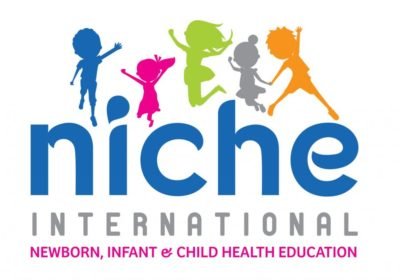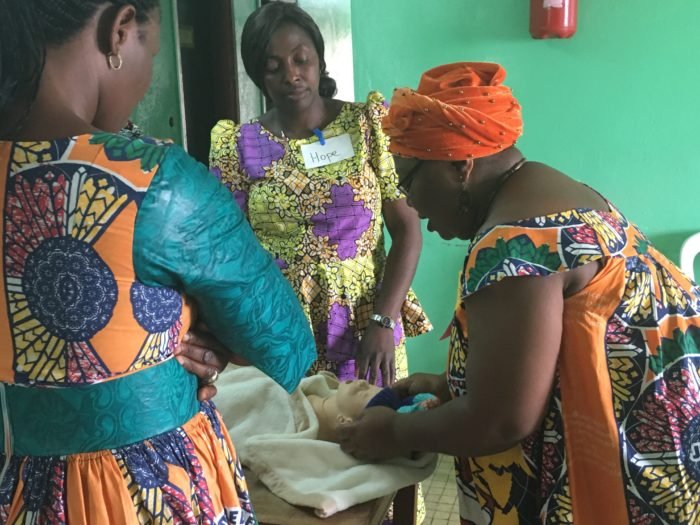
16 healthcare professionals have just completed 2 days of Continuing Professional Development facilitated by 5 UK faculty who are in Cameroon to support the local Neonatal Care Course faculty and train 12 more instructors on the GIC at the end of the week. One of the 16, Ethel (second from the left, back row), is a nurse educator and is shadowing Ferenc, one of the European Resuscitation Council’s senior educators (sixth from the left, back row), and learning how to be a GIC educator.
It was an intense 2 days, mainly of educational updates but we had also been asked for some neonatal clinical updates so the material was interspersed with talks on jaundice, seizure management and CPAP, skills workshops on umbilical venous catheterisation and intraosseous needles as well as an evidence based discussion on the merits and dangers of cooling babies with ischaemic encephalopathy (early brain injury due to being without adequate oxygenation for an extended period around the time of birth) in low- and middle-income countries.
These professionals are the front line workers who will drive change in their health care facilities; they are driven by a need to make things better for new born babies in their country and to reduce neonatal mortality. Training and encouraging them as instructors of the Neonatal Care Course empowers them to initiate new practices at the coal face and hopefully effect long term changes for the good of the families they serve.


